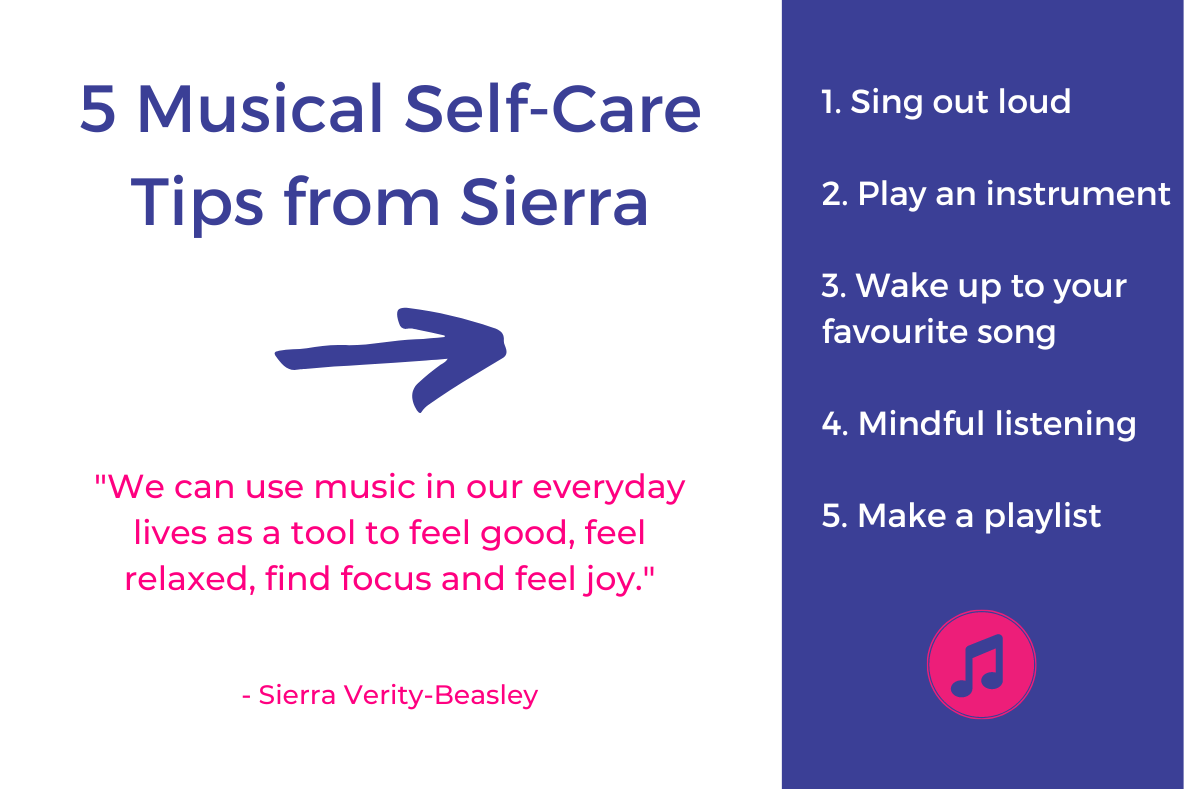“Where words fail, music speaks,” said the world-renowned Danish author, Hans Christian Andersen. This is especially true when exploring the intersection between music as a form of therapy and mental health.
According to the Australian Music Therapy Association, music therapy is a research-based allied health profession that can support people of any age who might be experiencing mental, intellectual, physical, emotional, or social challenges, and/or are wishing to improve their wellbeing.
Sierra Verity-Beasley of Resound Music Therapy is a registered music therapist who has an interest in mental health and music to support people to feel better, share, connect and creatively express their authentic selves. Sierra recently facilitated Satellite Foundation’s Songwriting Workshop, as part of the ‘At Home with Satellite program’ and brought her extensive knowledge and expertise to the organisation and its participants.
“The great thing about using music as a tool is that it is just so diverse and so applicable to so many different problems, challenges, people, and situations that you might encounter,” explained Sierra in Satellite’s recent interview on the Brainwaves program on Radio 3CR. “In that way, it also bridges social or emotional or physical challenges that people are having, that other therapies might not”, she added.
“Everyone seems to understand that music helps them feel better. And they generally get a sense that they want music in their lives. But they might not necessarily know exactly how, or why, or how to do that more intentionally for themselves.”
Sierra Verity-Beasley, Music Therapist
At Satellite, music is used as a medium to empower young people to feel better, make friendships, and express their unique creativity. In fact, Satellite celebrates all forms of creativity and has the strong belief that being ‘creative’ is simply being given permission to see, feel, share and communicate our experiences in this world in lots of different ways. When we are being ‘creative’, our brains release dopamine, which is a natural anti-depressant. Dopamine plays a role in how we feel pleasure. It’s a big part of our unique human ability to think and plan. It helps us strive, focus, and find things interesting.
If you would like to find out more about the power of music to improve health and wellbeing, listen to Satellite’s full interview on the Brainwaves program here.


